Hey,
These are strange days. For starters, consumer electronics are spontaneously blowing up in the hands—and pants—of terrorists. Personally, I find the complaints about this pretty amusing. Some folks seem to think that it’s somehow unfair for this to happen. But, save for a few legitimately tragic bystanders, the main reason these devices are blowing up is because they’re owned by terrorists. Don’t want your beeper to go boom? Don’t be a terrorist. It’s important to get the causality right.
Speaking of causality, let’s move on to another strange development.
Nudes and prudes.
Decades after she last posed nude for money, but only 48 days before the election, former first lady Melania Trump is defending her past nude modeling as part of the grand artistic tradition of celebrating the human form going back to Michelangelo’s David, John Collier’s Lady Godiva, and Paul Cézanne’s Les Grandes Baigneuses.
“Why do I stand proudly behind my nude modeling work?” she asks in a promotional video for her memoir. “The more pressing question,” she responds to her own inquiry, “is: Why has the media chosen to scrutinize my celebration of the human form in a fashion photoshoot?”
(As strange as this may seem so soon before Election Day, we should remember that this is largely a replay of Mamie Eisenhower’s similar gambit in 1956. Her “I’ll show as much ankle as I want” campaign is widely credited with Ike’s 384 electoral vote margin of victory over Adlai Stevenson. (Fun fact: One of my whippersnapper editors asked for a link to this bit about Mamie Eisenhower. So let me ruin the joke by explaining that it’s a joke. Maimie Eisenhower, like Dorothy Mantooth, was a saint!).)
While I do not personally consider lying naked on a fur blanket on Trump’s private jet to be quite Louvre-worthy, there’s no reason to deny that looking at her nude oeuvre is not exactly hardship duty. But the funny thing about this video, to me at least, is the word “pressing.” She makes it sound like this is an urgent and immediate question. I was not aware that “the media” was still “scrutinizing” Melania’s nude modeling. Scrutinize means to examine closely. It implies an extra helping of skepticism—“scrutinize the fine print of the loan document,” “this tax proposal deserves closer scrutiny,” that sort of thing.
Occam’s razor suggests that a lot of the attention paid to Mrs. Trump’s nude work has less to do with journalistic “scrutiny”—or some implied philistinism—than the time-honored habit of people, especially men, having a weakness for looking at hot naked women. I’m not going to comb through the marketing or social-psychology literature to provide data to back up my assertion, but I think the market demand for images of naked hot chicks is significantly larger than the demand for, say, Cezanne’s bathers (most of whom look kinda washed out and frumpy). This partly explains why the ring girls at boxing matches tend not to look like Kathy Bates in Misery and why Dallas Cowboy cheerleaders don’t dress like New England cranberry farmers.
People can debate which market Melania Trump’s bare-all phase was primarily aimed at. I really don’t care. Though I am open to the idea that it was a little of both, at least in her mind. Similarly, people can also debate whether Donald Trump was more attracted to Melania’s keen appreciation for high art or to more prosaic considerations.
But I do think this is a fun example of a larger phenomenon: the need to make “the media” the foil in almost every controversy.
J.D.’s schtick.
At a Wisconsin rally yesterday, J.D. Vance took a question from CBS News’ Katrina Kaufman.
“So, a woman who was behind an early Facebook post about the Haitian migrants in Springfield has now apologized for spreading false rumors,” Kaufman began. “You say that you have a responsibility to share what your constituents tell you, but don’t you also have a responsibility to fact-check them first?”
“Well, I think the media has a responsibility to fact-check the residents of Springfield, not lie about them,” Vance responded.
The crowd loved it, of course. But this is really quite insipid.
Vance went on to complain about the media doing exactly what he said they should do: griping about all of the reporters swarming Springfield to investigate the claims Vance floated without evidence. More importantly, of course Vance has a responsibility to fact-check complaints from constituents. I’ve never worked in a congressional office, but I know scores of people who have, including my wife. And, just like with media outlets—which I’ve worked in most of my adult life—people call in with all sorts of crazy claims. If a constituent called Vance’s office to complain that he was anally probed by aliens—or by Donald Trump—Vance wouldn’t just vomit that information out for public consumption. “Look at what the Biden regime is doing now!”
Vance could have called the authorities in Springfield to find out the truth of things. He went another way. And now he’s blaming the media for the chaos he’s caused—and for trying to determine the facts he had so little concern for.
Oh, and by the way, you know who the media is supposed to fact-check? Politicians. All of them. It’s a big part of the reason why we have a First Amendment. Maybe not during presidential debates, but certainly after them. No one is screaming “How dare you!” at the media—including the liberal media—for fact-checking Kamala Harris’ lie about no American troops being in combat. Fact-checking Vance’s lies—sorry “created stories”—isn’t an example of media bias; it’s an example of them doing their job.
This gets to my real point. Indisputably, the media creates bogus controversies. Some are about Trump. Some are about Harris. Others are about everything from racism to Israel to “banned books” that aren’t banned.
But not all controversies are created by the media. Some things are simply controversial. It is the nature of controversy that some controversies will be inconvenient to some party. Controversies are disputes, arguments, conflicts. A controversy about alleged police brutality is going to be inconvenient for the police involved. A controversy about a racial hoax is going to be inconvenient for the hoaxster. Surely, we all can see that Jussie Smollett and his defenders would have preferred the controversy over his stunt played out differently.
A quick aside: I should note that one of the major drivers of our asinine politics is that some controversies are good for everyone involved. Why? Because provocateurs benefit from the attention. So do their critics. Marjorie Taylor Greene, Ilhan Omar, Laura Loomer, Candace Owens, Michael Moore, and countless others of their ilk monetize their jackassery, and they provide a steady stream of content for their opponents on the other side who make such jackassery their beat. Cable news, the internet, and social media have created a kind of Baptists-and-Bootleggers dynamic where each side gets exactly the kind of content from the other side they hunger for. MSNBC hosts get to be perpetually outraged by the worst goobers on the right, and those goobers benefit from the attention. Fox News hosts get to do likewise with the worst goobers on the left.
Not everything is spin.
But back to my point. The controversy over Melania Trump being a former nude model stems not from “media scrutiny” but from the fact that she’s a former nude model. You can be sure that if she were the wife of a Democratic politician, the controversy and the scrutiny would be different. But the forcing mechanism would still be that she posed for pictures naked (which, again, I’m not terribly worked up about).
Similarly, the primary reason Donald Trump is controversial has nothing to do with media spin. It has to do with media coverage of the things Trump has said and done. Right now, vast swaths of the Trumpy right insist that people think Trump is a “threat to democracy” only because a bunch of pundits and scribblers—and, of course, Democratic politicians—say he’s a threat to democracy. To hear them tell it, we’re supposed to believe that but for this “extreme rhetoric” about Trump the thought would never have occurred to anybody.
That’s the purest hogwash.
The “media” didn’t make up the claim that Trump called for terminating the Constitution so he could be reinstalled in power, Trump called for terminating the Constitution on his own social media platform. The media didn’t make anyone shout “Hang Mike Pence!” or set up a gallows outside Congress, and it didn’t distort Trump’s words to create the impression that he defended those mobs. He calls the people who were lawfully convicted of beating up cops “hostages.” You can hear him say these and countless other anti-democratic things out of his own mouth at rallies or on his favorite TV shows. January 6 wasn’t a “pseudo-event.” It was, you know, an event. It happened, and Donald Trump caused it to happen.
This is particularly relevant for the often absurd debates swirling around the assassination attempts on Trump—which we should all be glad failed. Vance and Trump want everyone to believe that accurate, or at least defensible, descriptions of Trump’s behavior inspired two crazy people to try to kill him. Never mind that crazy people do crazy things for crazy reasons. The simple fact is that your media diet could consist entirely of C-SPAN coverage of Trump and you could still succumb to “Trump Derangement Syndrome” (or “Pro-Trump Derangement Syndrome”). A crazy person of left-leaning sensibilities could watch Trump lie about the stolen election, or listen to him rail about immigrants being non-human animals and vermin, and conclude, “he’s got to go.” Or, a crazy person could listen to the same rants and conclude, “Harris has got to go.”
I have no problem conceding that some media coverage of Trump makes things worse. But I think that’s often as true of pro-Trump coverage as anti-Trump coverage. The pro-Trump coverage repeats the claim that America will be doomed if Trump loses as often as the anti-Trump coverage repeats the opposite. Ron DeSantis tried to make this point in the primaries. There’d be no controversy over Trump’s payoffs to porn stars or his absconding with classified documents and his obstruction of their return if Trump, you know, hadn’t done these things. You can hate the media coverage of such things, but he did the things the media is covering.
The coverage isn’t the core problem. If Melania never posed naked there’d be no controversy over her career as a nude model. Similarly, the primary driver of Trump Derangement Syndrome—pro and con—is Donald Trump. If Trump spoke and behaved responsibly, there’d be no derangement. Or at least there’d be a lot less of it.
Events—deeds, words, actions, decisions—drive the coverage. Criticize the coverage all you like. But the coverage is merely the shadow cast on the wall.
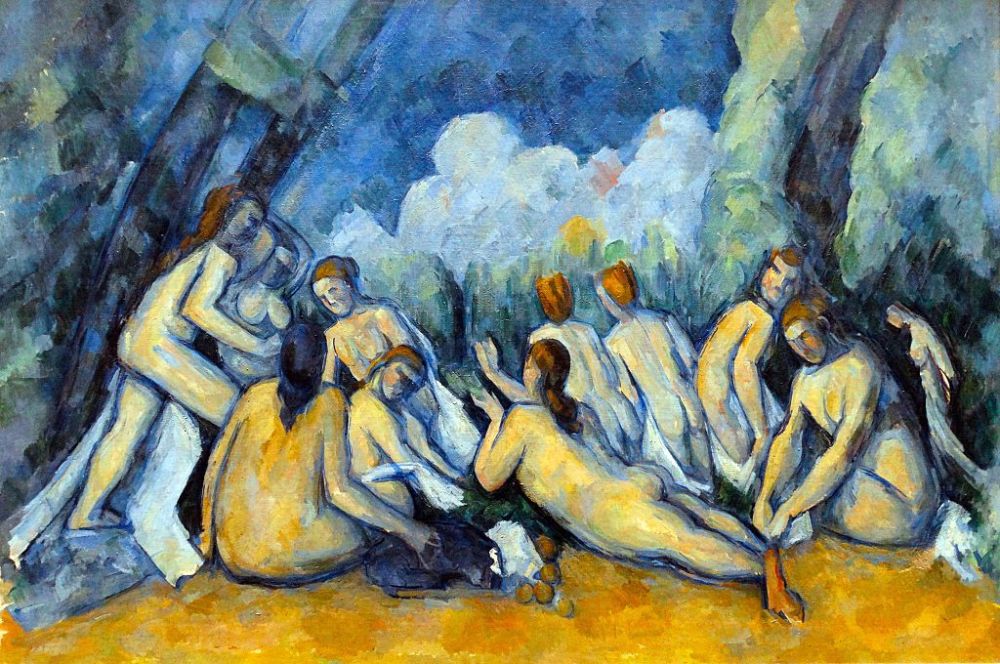

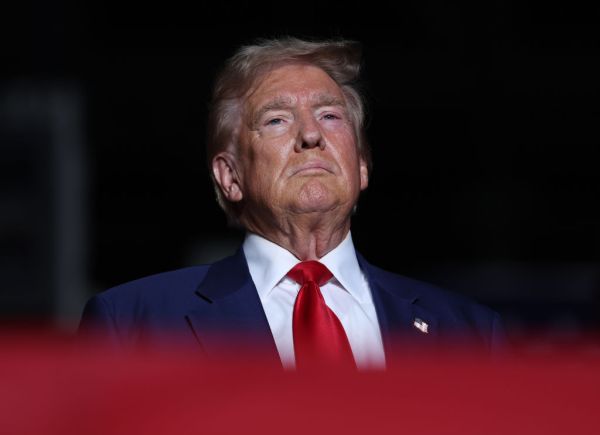
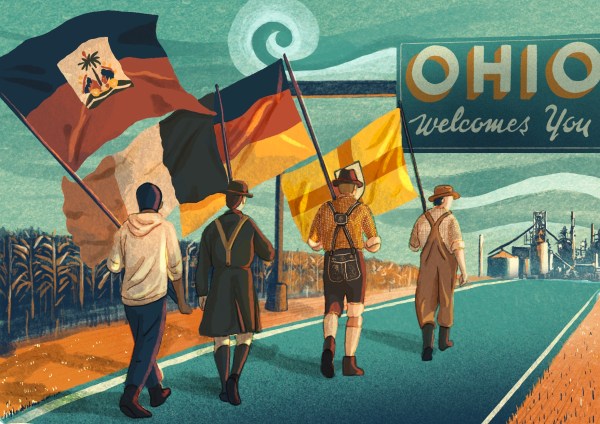
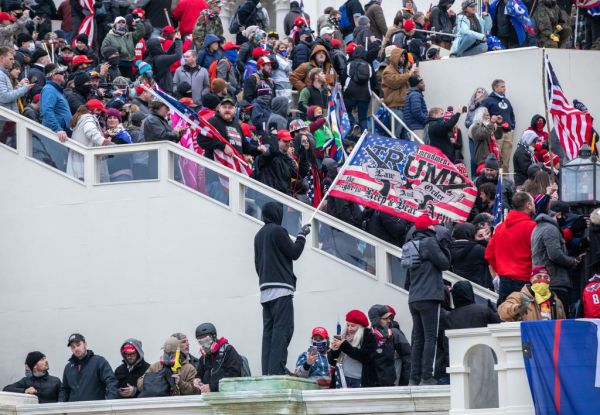

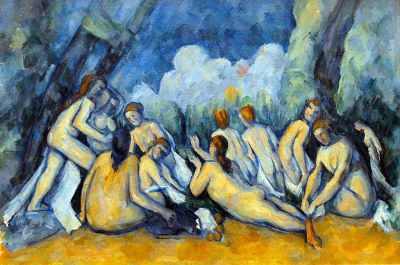
Please note that we at The Dispatch hold ourselves, our work, and our commenters to a higher standard than other places on the internet. We welcome comments that foster genuine debate or discussion—including comments critical of us or our work—but responses that include ad hominem attacks on fellow Dispatch members or are intended to stoke fear and anger may be moderated.
With your membership, you only have the ability to comment on The Morning Dispatch articles. Consider upgrading to join the conversation everywhere.